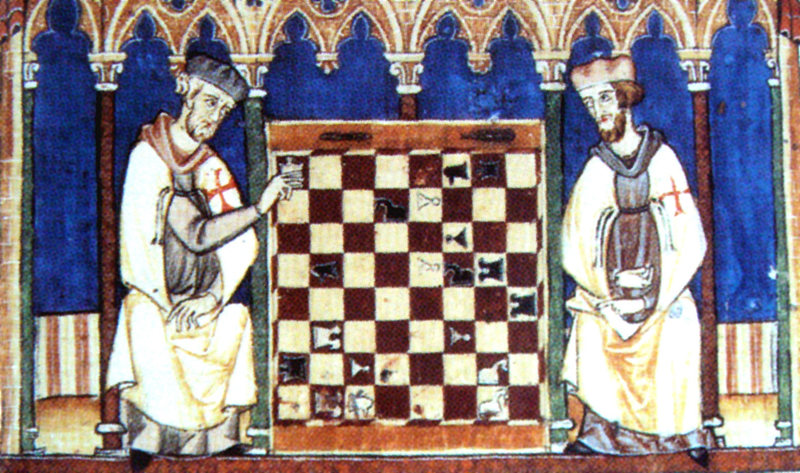During the 13th century, average life expectancy for men, even wealthy, landowners, was about 31 years, rising to about 48 years for those who made it to their twenties. The Knights Templar, however, often lived long past 60. And typically, they did not die from illness, but at the hands of their enemies, like Jacques de Molay, the order’s final Grand Master, who was burned alive at the age of 70 in 1314. Or Geoffrei de Charney, who was executed in the same year, and thought to have been around 63.
“The exceptional longevity of Templar Knights was generally attributed to a special divine gift,” writes the Catholic scholar Francesco Franceschi in a recent journal article, according to Atlas Obscura. But there is a more modern answer: The Knights Templar followed a compulsory diet that may have contributed to their long lives. The men in the group took formal vows of poverty, chastity and obedience, and though the order was one of the richest in the world, they didn’t eat like it.
The knights ate in pairs and were told to “study the other more closely” to make sure that neither was eating more than his share—and were also eating enough. They only ate meat three times a week and on Mondays, Wednesdays and Saturdays, the knights ate vegetable-filled meals and bread. They some ate a thick soup made of oats or vegetables and they grew fruits in their gardens. On Fridays, they ate no eggs, milk or animal products. They were allowed to drink wine, but not much, and it was diluted.
Thanks for reading InsideHook. Sign up for our daily newsletter and be in the know.


















